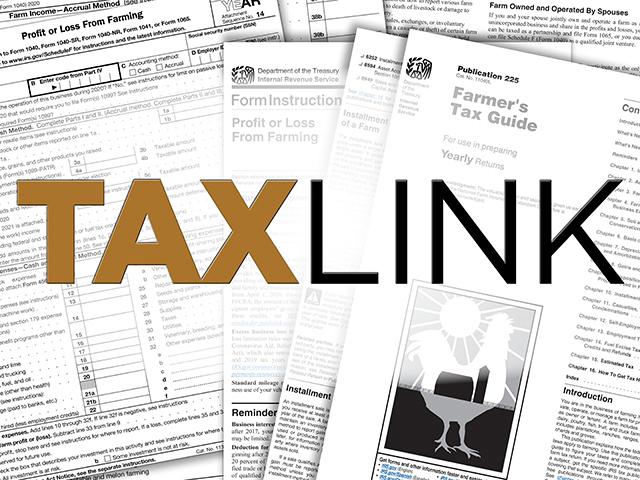Taxlink
American Families and Workers Act Includes Tax Changes for Farmers
It's tax season! Every year I gear up, wondering if Congress or a state will retroactively change tax laws. From a tax perspective, 2023 was rather boring. However, as I write this article, things might soon change. The American Families and Workers Act is currently going through Congress. This will result in a host of positive changes for taxpayers -- many retroactive to January 2023.
This is also a good time to point out that this is why I hate the March 1 filing. By the time the Act is passed, and software companies have integrated the changes, it might be well past the March 1 deadline. We also have the issue of state conformity. Some states don't automatically conform to the Internal Revenue Code. In this case, the state must pass a law to conform, which might happen after the April 15 deadline. So, unless there is a reason you must file early, it might be worthwhile waiting or extending.
Although it has not passed at the time I'm writing this, the Act has some provisions that have relevance to farmers. Here are a few key provisions that should be included in the final bill.
-- The Act would extend 100% bonus depreciation through Dec. 31, 2025. Assets purchased in 2023 would be eligible for 100% bonus (currently, 2023 assets are subject to 80% bonus). Keep in mind, this might affect larger farming operations that purchased equipment assuming only 80% would be a deduction.
-- The Act increases Section 179 expense from $1.16 million to $1.29 million. The phaseout also increases from $2.89 million to $3.22 million. This only applies to assets placed in service during 2024.
P[L1] D[0x0] M[300x250] OOP[F] ADUNIT[] T[]
-- Refundable child tax credits would increase from the current $1,600 to $1,800 (2023), $1,900 (2024) and $2,000 (2025). The credit would be adjusted for inflation starting in 2024. Also, taxpayers can use prior-year earned income to calculate the credit in 2024 and 2025 if the earned income was higher in the current year.
-- The threshold for filing 1099-MISC and 1099-NEC would increase from the current $600 to $1,000 starting in 2024.
-- The Act delays the requirement to amortize R&E/174 expenses until after Dec. 31, 2025. However, this would require amended tax returns if you amortized R&E/174 on the 2022 tax return.
-- Business interest deduction would be changed to allow depreciation, amortization and depletion back into the calculation like it was prior to 2022. This will help farmers with high interest payments.
As you can see, there are several benefits to the Act. But, like everything, there is a cost. To pay for the Act, the ability to file a new Employee Retention Credit claim would be closed after Jan. 31, 2024. So, hopefully, you filed your ERC claim prior.
**
-- DTN Tax Columnist Rod Mauszycki, J.D., MBT, is a tax principal with CLA (CliftonLarsonAllen) in Minneapolis, Minnesota.
-- Read Rod's "Ask the Taxman" column at https://www.dtnpf.com/…
-- You may email Rod at taxman@dtn.com
[PF_0324]
(c) Copyright 2024 DTN, LLC. All rights reserved.



